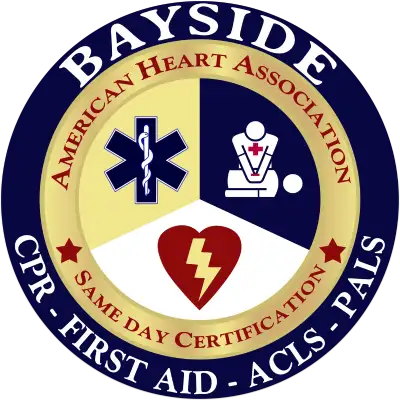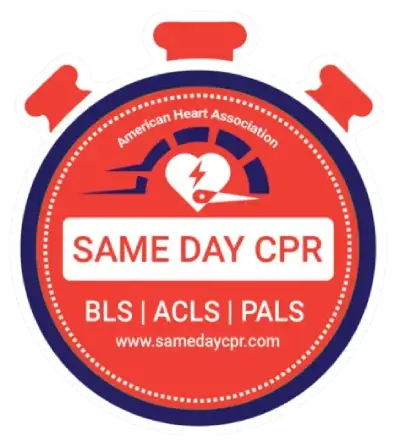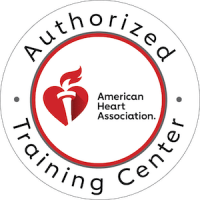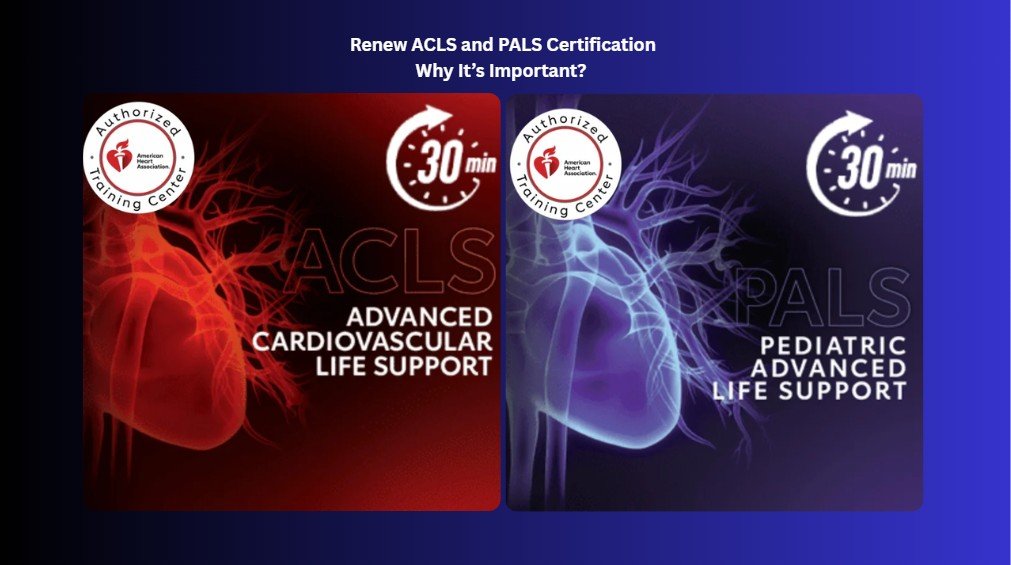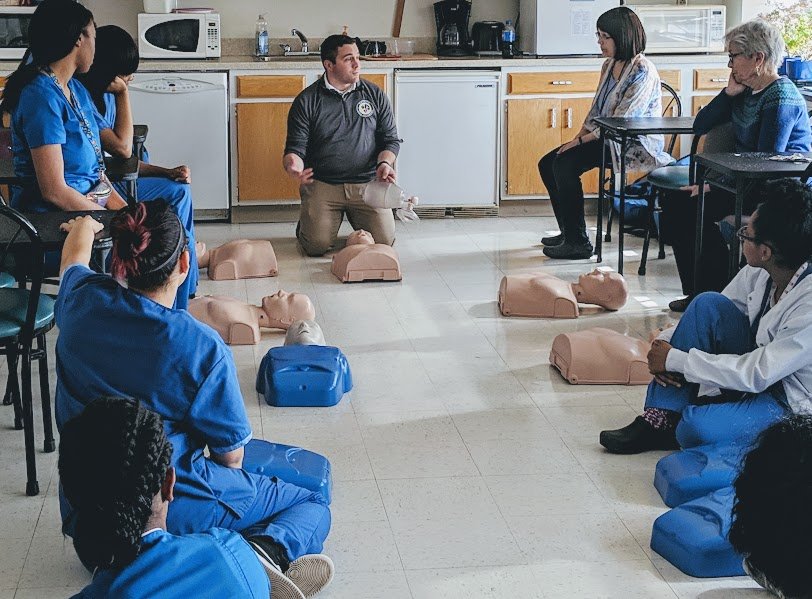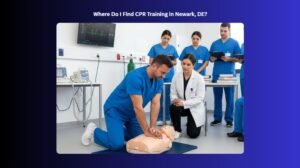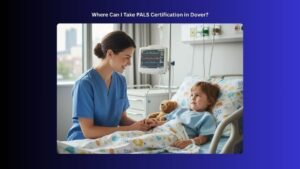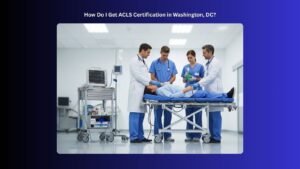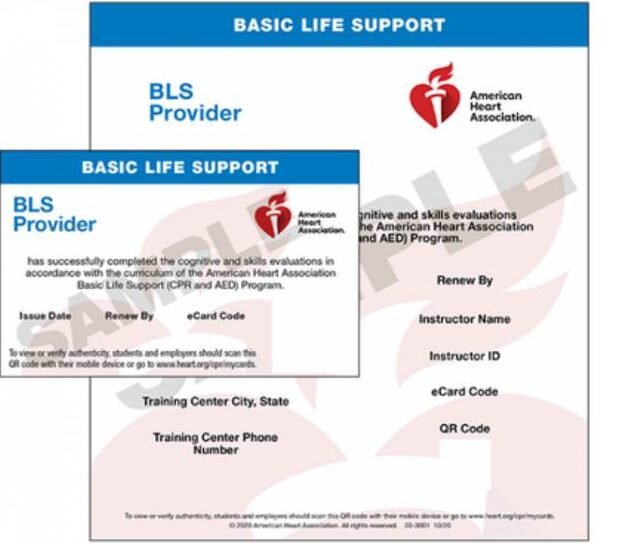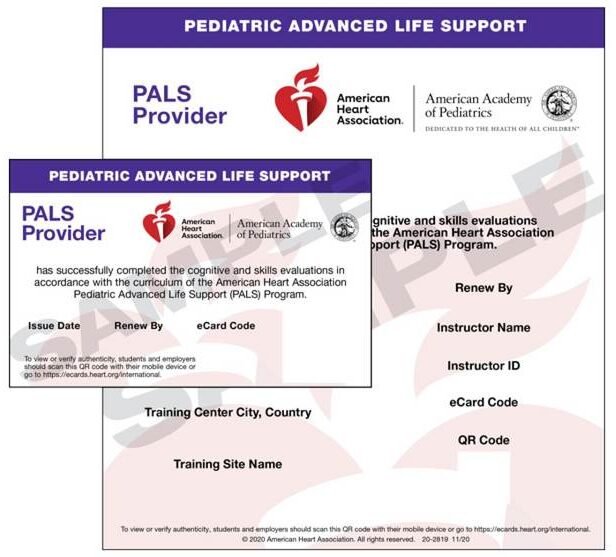Staying current with the latest training and certifications is crucial in the fast-evolving healthcare field. For healthcare professionals, renewing Advanced Cardiac Life Support (ACLS) and Pediatric Advanced Life Support (PALS) certifications isn’t just a regulatory requirement, it’s a commitment to professional excellence and improving patient outcomes. As your certification nears its expiration date, it’s important to explore renewal options promptly. If you fail to renew on time, you risk missing the latest emergency care guidelines, and lacking compliance with critical resuscitation training, compromising patient safety and the quality of care you provide.
This blog post explains the renewal process for your ACLS and PALS certifications, highlights important protocol updates, and emphasizes why recertification is crucial for both your career and your patients’ safety.
Understanding ACLS and PALS Renewal
Why Renewal is Necessary
Health organizations endorse ACLS and PALS certifications to ensure that healthcare providers are up-to-date with the most current practices and skills necessary to save lives. These certifications are generally valid for two years, after which professionals must renew their credentials. The primary reason is that emergency medical care is a rapidly changing field, and practices that were standard a few years ago may now be outdated due to new research findings or improved technologies.
The Renewal Process
Renewing your ACLS or PALS certification is a structured process that ensures healthcare providers remain competent, updated, and confident in handling life-threatening emergencies. Here are the steps involved in the renewal process designed to reinforce and update your knowledge and skills:
1. Pre-Assessment
Most programs begin with a skill assessment test to determine your existing knowledge and highlight areas that may require more focus during the renewal course.
Includes:
- Ensure you’re qualified for the hands-on portion of the course.
- Evaluate your current understanding of key concepts and algorithms.
- Identify areas where you may need a refresher.
2. Coursework
You’ll participate in a mix of lectures, reading assignments, and interactive activities that cover the latest guidelines and techniques. This coursework is often available both in-person and online.
Includes:
- Review of algorithms for cardiac arrest, respiratory emergencies, and post-cardiac arrest care.
- Learning through case-based scenarios that simulate real-world medical emergencies.
- Airway management, rhythm recognition and interpretation, pharmacology, and team dynamics in a code response.
3. Skills Evaluation
Practical skills are assessed through hands-on sessions where you’ll demonstrate your competence in various emergency procedures under simulated conditions.
Includes:
- Perform high-quality CPR.
- Manage advanced airways.
- Use defibrillators and other life-saving equipment.
- Lead or participate in a simulated resuscitation team during code scenarios.
4. Written Examination
Finally, you’ll take a written exam that tests your understanding of new protocols and information.
Includes:
- Understanding of updated ACLS/PALS protocols.
- Knowledge of medication dosages and indications.
- Decision-making in high-risk, high-stress clinical situations.
Protocol Updates That Come With Recertification
For healthcare providers, keeping up with these changes isn’t optional, it’s essential. The American Heart Association (AHA) and other authorities release updated guidelines based on the latest clinical research every few years. Renewing your certification will acquaint you with such updates, which may include:
- Revised algorithms for managing cardiac arrest, stroke, or other cardiovascular emergencies, reflecting the most effective evidence-based approaches.
- New drug protocols as research refines optimal medications, dosages, and delivery methods for acute care scenarios.
- Enhanced techniques in airway management, vascular access, and resuscitation skills, designed to increase efficiency and survival rates.
- Greater emphasis on teamwork, communication, and leadership during resuscitation efforts, aligning with current best practices in high-performance team response.
The Importance of Staying Certified
Staying certified isn’t just about maintaining credentials, it’s about ensuring you continue to meet the highest standards of care in an evolving healthcare environment. Certification renewal reinforces essential skills, keeps you updated on the latest protocols, and ensures compliance with current guidelines. Whether you’re a nurse, paramedic, or physician, regular renewal helps you stay confident, and prepared to deliver effective, evidence-based care when it matters most. Here we discuss the main reasons to renew your ACLS and PALS certification:
1. Improving Patient Outcomes
The primary objective of ACLS and PALS training is to equip healthcare providers with the skills necessary to respond effectively in life-threatening situations. By staying certified, you ensure you are always ready to employ the latest and most effective techniques. For instance, updates in resuscitation guidelines or the introduction of new medications can drastically change patient care protocols. Staying certified means you’re always operating with the most current knowledge, significantly improving the chances of patient recovery and survival in emergencies.
2. Career Advancement
For many healthcare professionals, current ACLS and PALS certifications are more than just enhancements to their credentials; they are often prerequisites for roles that involve direct patient care in critical settings. These certifications are testaments to a professional’s commitment to their field and ability to handle complex clinical situations. They can influence hiring decisions, promotions, and role assignments within medical teams. In competitive healthcare fields, being up-to-date with these certifications can set you apart from other candidates and showcase your dedication to maintaining high standards of patient care.
3. Confidence in Critical Situations
Confidence can be just as critical as skill in emergency medical scenarios. Regular training and recertification sessions help reinforce knowledge and hone skills, which in turn minimizes second-guessing and hesitation.
Hands-on simulations and updated content in each ACLS or PALS course during recertification help solidify one’s ability to react swiftly and effectively. Upon course completion, professionals are confident and better prepared to perform under pressure, improving both individual performance and the efficiency of the entire emergency response team.
4. Meeting Legal and Regulatory Requirements
Holding valid certifications can also have significant legal implications. In the healthcare field, practitioners are expected to meet certain standards of care, which can be demonstrated by completing high-quality certification courses, such as ACLS, PALS, or Basic Life Support.
They prove that you were trained to perform to the standards expected in your profession, thus providing legal protection for your actions and decisions in high-stakes environments. Additionally, maintaining these certifications helps healthcare facilities comply with state and federal regulations, which may mandate specific training credentials for staff involved in patient care operations.
Is Online Recertification Service Available?
Recertifying your ACLS or PALS certification often involves a mix of online and in-person requirements. While you can complete much of the process online, including studying course materials, taking the written exam, signing up for classes, and scheduling your hands-on skills session, the practical skills evaluation must be done in person. This hands-on session is essential to demonstrate your ability to perform critical life saving techniques correctly, such as chest compressions and airway management. By combining online convenience with in-person training, healthcare providers can efficiently meet certification requirements without disrupting their busy schedules.
Certification Renewal Isn’t Just a Formality
In short, renewing your ACLS and PALS certifications is a critical part of professional development in the healthcare field. It equips you to deliver the highest level of care during emergencies, supports career advancement, and ensures compliance with healthcare standards.
Take the next step toward making a life-saving impact by enrolling in a CPR course today. Whether you’re earning your first certification or renewing an existing one, Bayside CPR offers flexible, efficient training designed to fit even the busiest schedules. The course includes a brief online component followed by a 30-minute, in-person skills session at over 60 locations. Earn your AHA certification in ACLS, BLS, PALS, CPR, or First Aid, and receive your certification card on the spot. In a field where life-and-death decisions are made in moments, being well prepared isn’t just an option; it’s a necessity.
